Industries

Reliable, efficient air filtration systems are essential for maintaining high performance and ensuring maximum safety, regardless of the energy source utilised for power generation. As energy generation is fraught with hazards, installing high-performance air filters ensures the protection of your plant and its employees and contributes to the continual operation of your business. This is true regardless of the harsh conditions present, such as the high temperatures of diesel or gas combustion or the extensive safety concerns surrounding nuclear power generation.

The automotive segment, with its growing demand and options, is always looking for the best solutions to manufacture the best-performing and best-looking models. Filtration plays a huge role in ensuring the highest quality finish to the paint to ensure customer satisfaction as well as to reduce warranty claims and returns. Spectrum filtration offers filters with long life and high efficiency to prevent contamination and defects ensuring quality and consistency.
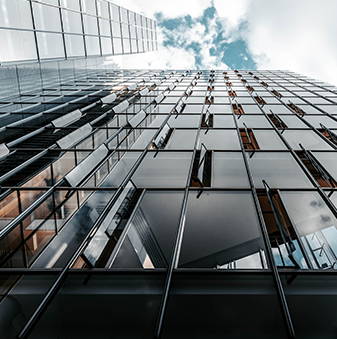
IAQ is a primary concern in all indoor spaces, especially those with higher footfall. Particulate and molecular filtration can help with issues related to IAQ in commercial spaces. Also, HVAC system uses ~50% of the energy and filters with higher efficiency and lesser energy consumption are a must. Making sure that the circulated air is clean, and that occupants are protected is primarily in order to address concerns regarding the reopening of offices and commercial spaces, especially post COVID-19.
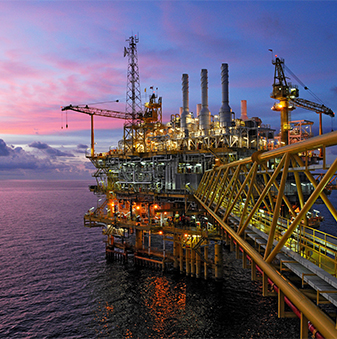
The maintenance of gas turbine engines has long been emphasised in the offshore oil and gas sector, but air filtration systems are a crucial concern that frequently goes unnoticed. Production of oil and gas frequently occurs in particularly challenging circumstances. Fog, salt, mist, air pollution from other sources, and extremely high dust concentrations are some of the difficulties the filters must contend with. With 25 years of experience in the Oil & Gas industry, we give you the most optimized filtration solutions.
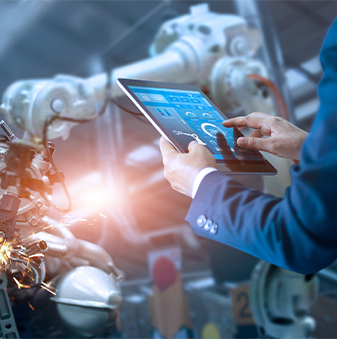
Manufacturing facilities always produce micron size airborne pollutants. These smaller particles are vital and harmful and thus pose a problem with regard to work and process safety. Heavy dust concentrations, molecular contaminants and combustible dust are examples of contamination which results in corrosive effects and flammability and may even be dangerous to both the environment and the workers.
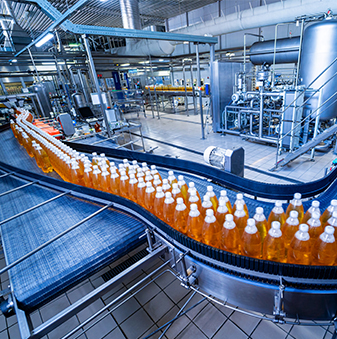
The air in food and beverage processing facilities can contain various contaminants, including dust, bacteria, mold, and other particles that can contaminate the food products being processed. Air filters can help remove these contaminants and ensure that the air in the facility is clean and safe for food processing. Air filters can also help control odors and improve indoor air quality in food and beverage facilities. They can remove airborne particles that can cause allergic reactions or respiratory problems in workers and customers, which can improve the overall health and safety of the facility.
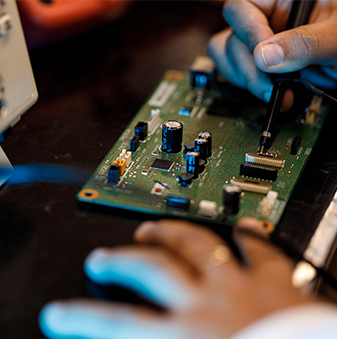
Reliable, efficient air filtration systems are essential for maintaining high performance and ensuring maximum safety, regardless of the energy source utilised for power generation. As energy generation is fraught with hazards, installing high-performance air filters ensures the protection of your plant and its employees and contributes to the continual operation of your business. This is true regardless of the harsh conditions present, such as the high temperatures of diesel or gas combustion or the extensive safety concerns surrounding nuclear power generation.
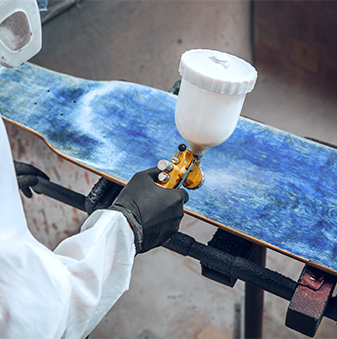
Air filters play a crucial role in surface finishing processes by removing contaminants from the air and improving the quality of the finished product. Surface finishing processes such as painting, electroplating, and powder coating require a clean and controlled environment to prevent contamination and achieve optimal results. Air filters are typically used in two stages during surface finishing processes. The first stage involves pre-filtration, where larger particles such as dust and debris are removed from the air. This helps to protect downstream filtration equipment and prevent contamination of the finished product. The second stage involves final filtration, where smaller particles such as fumes, vapors, and fine dust are removed from the air. This helps to ensure that the air quality in the work area is maintained at a safe and acceptable level.

The life sciences, healthcare, and pharmaceutical process chains all depend on clean air, it's always crucial to pick the right filter for a clean room application. In the life sciences industry, where biological life or living organisms are present, it is critical to maintain the highest level of hygiene as well as superior indoor air quality. The filtering system is essential in ensuring the air is free of airborne pollutants, germs, viruses, and dangerous gases from the AHU (Air Handling Unit) to the output. The necessity of Air filters in the life science industry is huge due to its value in protecting hospital equipment as well as patients' and employees' health. We would be unable to manufacture medical equipment, antiviral drugs, vaccines, gene therapies, highly potent drugs, and other life-critical pharma and science products without air filters.

"The pharmaceutical industry is one of the most heavily regulated industries with quality management systems that have a direct impact on the ultimate quality of finished products. FDA regulates pharmaceutical cleanrooms and requires that they meet certain standards for design, construction, use, and testing. FDA has also set up strict requirements for air purity levels within the pharmaceutical industry to minimise the threat of airborne contamination. The performance of installed air filters, whether terminal filters or prefilters, or HEPA filters/ ULPA filters, directly impacts how effectively harmful contaminants are prevented from entering the airstream in process environments."



